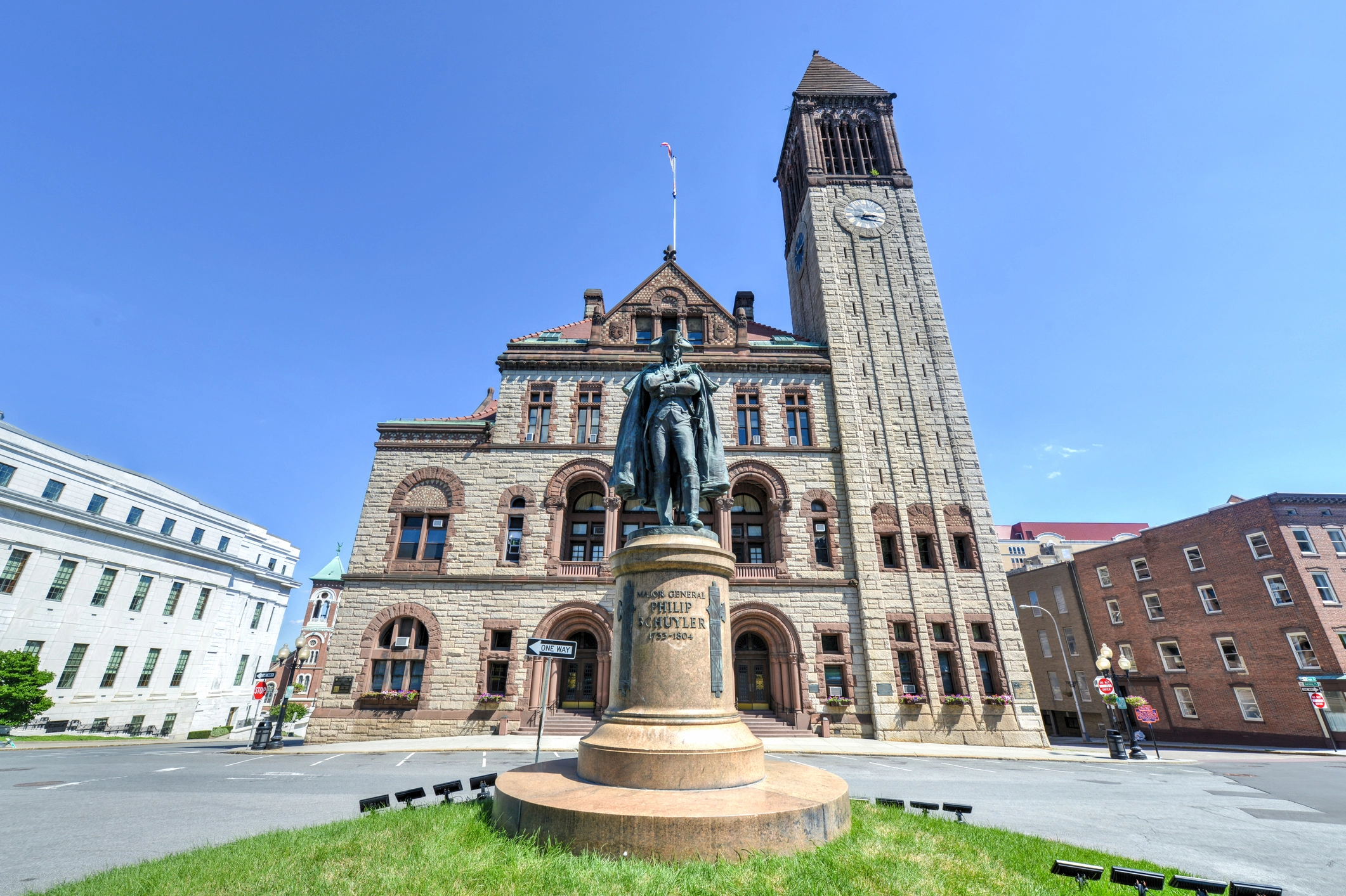
Getty Images/iStockphoto
On Sunday, a statue of Phillip J. Schuyler, a major general in the Revolutionary War, was removed from his pedestal in Albany, New York, and hauled away on a truck flatbed to parts unknown—or, at least, to parts less public.
Schuyler was a relatively obscure member of George Washington’s inner circle, though his accomplishments as a New York lawmaker and a United States senator earned him a seven-foot-tall statue installed more than a century ago outside Albany’s grand City Hall. His stature, however, skyrocketed after the success of the musical Hamilton (in which he plays a supporting role), and with the newfound popularity came renewed scrutiny of his legacy.
By some accounts, Schuyler was the most prodigious slaver in the Albany area during his lifetime. In June 2020, Albany’s mayor, Kathy Sheehan, authorized the removal via executive order. “The City’s decision to place a stature of [Schuyler] in from of the City Hall ignored a grim aspect of his life,” reads the directive. “Tangible proof,” it continues, of his “cruel legacy” was manifested in the city as recently as 2016, when the remains of 14 enslaved people owned by Schuyler’s family were reinterred in a local cemetery after being distended in 2005 from an unmarked grave on the family’s former property.
“The City of Albany is long overdue in confronting its history of racism and inequality,” it concluded.
The removal, stalled for years by financial concerns and the pandemic, is part of a broader reconsideration of monuments to historical figures who supported or perpetuated systematic oppression, a movement which gained traction worldwide after the 2020 death of George Floyd, who was murdered in police custody in Minneapolis.
The removal was met with opposition from influential local lawmakers, including Representative Elise Stefanik, the chair of the House Republican Conference, who accused Sheehan on Twitter of attempting to ”erase history” with her executive order.
The bronze likeness of Schuyler was made by Scottish-born sculptor J. Massey Rhind and was gifted to Albany in 1925 by George C. Hawley, a local beer baron. According to the city’s paper of record at the time, the Knickerbocker Press, its arrival was commemorated by a parade watched by thousands of people. Schuyler died in 1804, and numerous Albany establishments and roads still bear his name.
Speaking to the New York Times on the statue’s removal, Sheehan said, “It’s not about cancel culture and not about canceling him, but about moving him to a place where the entire story is contextualized. You cannot contextualize the history of anyone on a traffic circle.”


